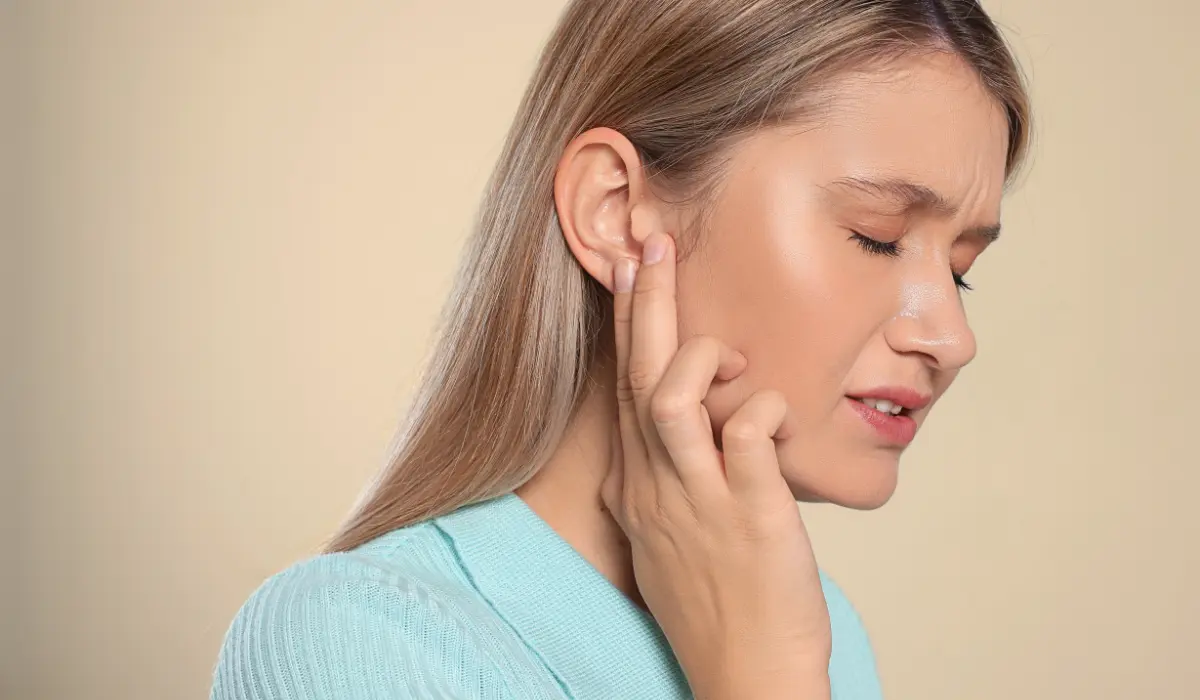If you’ve ever experienced a stuffy nose, itchy eyes, and that dreaded feeling of pressure in your ears, you’re not alone. Allergies are a common condition that affects millions of people worldwide, and one of the lesser-known symptoms is ear pain. In this comprehensive guide, we’ll explore the relationship between allergies and ear pain, and provide you with valuable insights and practical tips to help you manage this uncomfortable condition.
Imagine waking up on a beautiful spring morning, only to be greeted by a throbbing sensation in your ears. You dismiss it as a minor annoyance, but as the day progresses, the discomfort intensifies, making it difficult to concentrate or even carry out your daily tasks. If this scenario sounds familiar, your ear pain may be linked to allergies – a connection that often goes unnoticed.
What Causes Allergies?
Allergies are the result of an overreaction by the body’s immune system to certain substances, known as allergens. These allergens can be found in various forms, including pollen, dust mites, pet dander, mold spores, and certain foods. When an allergic person is exposed to these triggers, their immune system mistakenly identifies them as harmful, leading to the release of histamine and other chemicals that cause the classic signs of allergies – sneezing, runny nose, itchy eyes, and congestion.

Relationship Between Allergies And Ear Pain
So, how exactly do allergies contribute to ear pain? The answer lies in the anatomical connection between the ears, nose, and throat. When allergies cause inflammation and congestion in the nasal passages and sinuses, the excess mucus and pressure can travel through the Eustachian tubes – the narrow channels that connect the middle ear to the back of the throat.
This buildup of pressure and fluid in the middle ear can lead to a variety of uncomfortable symptoms, including ear pain, popping or clicking sensations, and even temporary hearing loss. Additionally, the inflammation caused by allergies can also affect the outer ear, leading to itching, redness, and discomfort.
How To Treat Ear Pain Caused By Allergies?
If you’re experiencing ear pain due to allergies, there are several treatment options available to help alleviate your symptoms. Here are some effective ear allergy treatments:
- Antihistamines: Over-the-counter or prescription antihistamines can help reduce inflammation and relieve ear pain by blocking the effects of histamine, the chemical responsible for many allergy symptoms.
- Decongestants: These medications can help reduce congestion and fluid buildup in the Eustachian tubes, relieving ear pressure and pain. However, it’s important to use decongestants judiciously, as prolonged use can lead to rebound congestion.
- Nasal corticosteroids: Prescription nasal sprays containing corticosteroids can effectively reduce inflammation in the nasal passages and sinuses, indirectly alleviating ear pain caused by allergies.
- Ear drops: In some cases, your healthcare provider may recommend ear drops containing medications like corticosteroids or anesthetics to directly target inflammation and pain in the ear canal or middle ear.
Tips For Managing Allergies
While treating the ear pain itself is important, addressing the underlying cause – allergies – is crucial for long-term relief. Here are some helpful tips for managing allergies:
- Identify and avoid triggers: Keep a journal to track your symptoms and identify the specific allergens that trigger your reactions. Once you’ve pinpointed the culprits, take steps to avoid or minimize exposure to them.
- Use air purifiers and filters: Investing in high-quality air purifiers and filters can help remove allergens like dust, pollen, and pet dander from your living and working spaces.
- Practice good hygiene: Regularly cleaning and vacuuming your home, washing bedding in hot water, and grooming pets frequently can help reduce allergen levels.
- Consider immunotherapy: For severe or persistent allergies, your healthcare provider may recommend immunotherapy, also known as allergy shots, which can desensitize your immune system to specific allergens over time.
Also Read: Can Ginger Cure Knee Pain? Exploring Nature’s Remedy
Conclusion
Allergies and ear pain can be a frustrating combination, but understanding the connection between the two can help you take proactive steps to manage your symptoms effectively. By incorporating ear allergy treatments, identifying and avoiding triggers, and practicing good hygiene, you can reduce inflammation, alleviate discomfort, and enjoy a better quality of life. Remember, seeking medical advice from a healthcare professional is crucial, especially if your ear pain persists or worsens, as it could be indicative of an underlying condition requiring specialized treatment.
Frequently Asked Questions
Yes, allergies can cause ear pain that is localized to one side if the inflammation and fluid buildup is concentrated in one Eustachian tube.
Yes, the symptoms of allergies like ear pain, pressure, and fluid buildup can mimic the symptoms of an ear infection.
No, Zyrtec (cetirizine) is an antihistamine used to treat allergy symptoms. It does not treat bacterial or viral ear infections directly.
Ear infections are typically treated with antibiotic ear drops or oral antibiotics if bacterial. Decongestants, pain relievers, and warm compresses can also provide symptom relief.
Yes, seasonal allergies that cause nasal and sinus inflammation can lead to ear pain, pressure, and discomfort due to the connection between the ears, nose, and throat.

